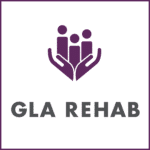Explaining Ontario Automobile Insurance Anti-Fraud Task Force and Amendments to the SABS

With the Ontario legislature back in session, new Premier Kathleen Wynne has announced that the government will be moving forward with several proposed regulatory amendments to the Statutory Accident Benefits Schedule (SABS) stemming from recommendations from the 2012 Ontario Automobile Insurance Anti-Fraud Task Force Report.
The report was completed by a committee appointed in 2011 to advise the Ontario government on the extent of automobile fraud in the province and recommend measures to deal with it. The report outlined 38 different recommendations that will require new legislation, amendments to regulations, changes to industry practice, and coordination of various levels of government with private sector organizations.
The first cluster of these changes, although still in draft language, will take effect in June of this year.
These initial amendments include:
- Requiring insurers to provide claimants all reasons for denying a claim.
- Giving claimants the right to receive a bi-monthly statement of benefits paid out on their behalf.
- Giving insurers the right to request from claimants a confirmation in writing that goods or services were provided to them, including a statutory declaration as to the circumstances that gave rise to a particular invoice for the goods and services, with particulars as to when, where and by whom the goods or services were provided. The claimant must provide the insurer with this information within 10 business days after receiving the request, and the amount payable by an insurer under the invoice in question does not become overdue and no interest accrues on it until the claimant complies with the request.
- Making providers subject to sanctions for overcharging insurers for goods and services and banning them from asking claimants to sign blank claim forms.
- Providing insurers with the ability to examine a claimant under oath, where necessary to determine which insurer would be responsible for coverage.
- Clarifying that the exemption for lawyers and paralegals in the unfair or deceptive acts or practices regulation applies to lawyers and paralegals only when they are acting in a legal capacity.
Anyone working legitimately within the auto accident sector welcomes efforts to reduce fraud in the system so that not only will we all pay lower auto insurance rates, but also so that accident victims get the rehabilitation help they need.
However, as the Alliance of Community Medical and Rehabilitation Providers stated in a January, 2013 press release, the Province has “amended several provisions within the regulation in a manner that will further distance legitimately injured claimants from their paid-for and desperately needed benefits…The Ministry of Finance has missed an opportunity to follow a recommendation of the Anti-Fraud Task Force to properly protect claimants whose treatment is wrongly denied by insurers, and additionally they’ve added a provision which creates another barrier for legitimate victims to access healthcare services”. (https://www.newswire.ca/fr/story/1106207/recent-changes-to-insurance-practices-will-punish-accident-victims)
That is, while the new regulatory language requires insurers to provide claimants with all the reasons (and not just medical reasons) for denying claims, there is still no enforcement or punitive measure if insurers fail to follow the regulation as there is for healthcare providers who abuse the system.
In addition, while the Anti-Fraud Task Force recommended that healthcare providers should keep a record of victims’ treatment attendance, the new regulatory amendment has instead placed this tracking responsibility onto the accident victim who must provide the information upon the insurer’s request or risk suspension of payment for the approved treatment. FAIR Association of Victims for Accident Insurance Reform has also expressed concern about the provision stating that this places “additional stress on accident victims with burdensome questions that many accident victims would be unable to answer. Consumers who are injured, often in pain and sometimes cognitively challenged know nothing of the intricacies of a rehabilitation workers file…This will disadvantage claimants in a way not intended by the Task Force.” (https://www.bridgepointfinancial.ca/news/articles/FAIR-Comment-on-SABS-Regulatory-Amendments.pdf)
The Anti-Fraud Task Force Report specifically cautions that its recommendations “should not make things worse for legitimate claims”, as was the case with the previous amendments to the SABS in 2010. The consequence of those changes was the dramatic reduction of benefits for accident victims, greater discretion to insurers to reject claims (resulting in increased backlog within the government’s formal dispute resolution process), increased profits for insurers and only marginal to no reduction in insurance premiums for drivers .
Stakeholders in the auto insurance sector must be especially vigilant that through the implementation of these new regulatory changes to combat fraud, the government must at the same time be encouraged to ensure the protection of consumer’s unimpeded access to needed help and paid for benefits.
